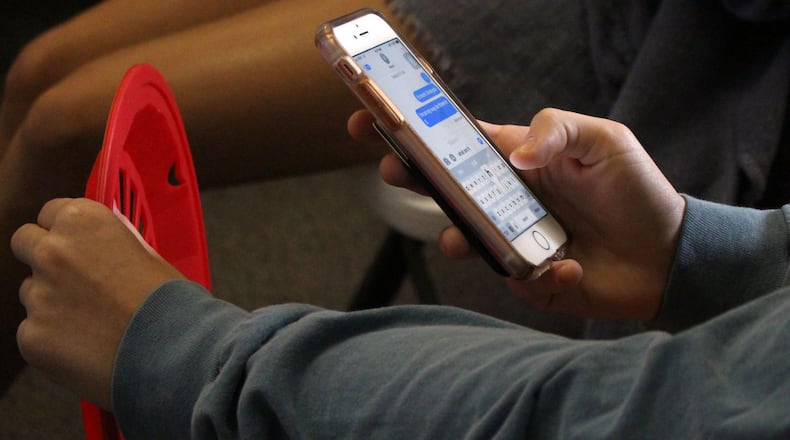Prohibited
- Holding or supporting, with any part of the body, a wireless telecommunications device or stand-alone electronic device (for example, an iPod).
- Writing, sending or reading any text-based communication, including a text message, instant message, email or internet data while holding your device.
- Watching a video or movie other than watching data related to the navigation of your vehicle (i.e., your mapping app or GPS screen).
- Recording a video.
Allowed
- Speaking or texting while using hands-free technology.
- Using a GPS system or mapping app.
- Wearing and using a smartwatch.
- Using an earpiece to talk on the phone.
- Using radios, CB radios, CB radio hybrids, commercial two-way radios, subscription-based emergency communication devices, prescribed medical devices, amateur or ham radios, and "in-vehicle security, navigation or remote diagnostics" systems.
- There are circumstances where you can handle an electronic device while driving: Reporting a traffic accident, medical emergency, fire, a crime or delinquent act or a hazardous road condition. You can also use your hands if you're lawfully parked (not at a stoplight — "lawfully" means off or beside the road in an area open to parking).
- Some people are exempt from the hands-free requirement if they're performing official duties: police, firefighters, emergency medical personnel, ambulance drivers, other first responders and utility employees or contractors responding to a utility emergency.
About the Author
Keep Reading
The Latest
Featured




